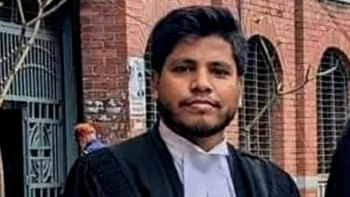Fatwa leaves family ostracised for ten years
Village life is supposed to be quiet but for Fatir Ali and his family, from Eraligul village in Moulvibazar's Juri upazila it's far too quiet. For the last decade, as a result of a fatwa stemming from a land dispute, Eraligul villagers have been forbidden from having any interaction at all with Fatir Ali's family, including speaking to them.
“It's been like this since my childhood,” says family member Shermina Begum who is now a second-year zoology student at Moulvibazar Government College. “I cannot speak to anybody in the village.”
“I am not invited to any social event in the village,” says Fatir Ali. “I am forbidden to pray at the local mosque, so I go to a neighbouring village for prayers.”
The problem began a decade ago, when Fatir Ali was involved in a dispute with his brother Sharafat Ali over eight decimals of land. In 2007, Fatir Ali built a house on the land, which his brother was trying to occupy. A local panchayet committee involving respected locals Aftab Ali, Ustar Ali and Jamir Uddin, was engaged to resolve the dispute.
While the panchayet committee was arbitrating the land dispute, Fatir Ali, driven by concerns of bias, filed a petition against the committee at Juri Police Station. The committee took offence and Fatir Ali was asked to apologise. He refused.
For his refusal to apologise, the committee issued the fatwa ostracising the family. “Fatir Ali and his wife treated elders with disrespect,” the committee members claim. “They did not ask for forgiveness. That is why the fatwa was issued.”
The land dispute was resolved seven years ago, after a survey. Only the fatwa remains.
“Such a rule is illegal,” says the additional assistant public prosecutor of Moulvibazar judge court, Abdul Khaliq.
“Following investigation of the matter we will take legal action,” says Juri Upazila Nirbahi Officer Mintu Chowdhury.



 For all latest news, follow The Daily Star's Google News channel.
For all latest news, follow The Daily Star's Google News channel. 



Comments